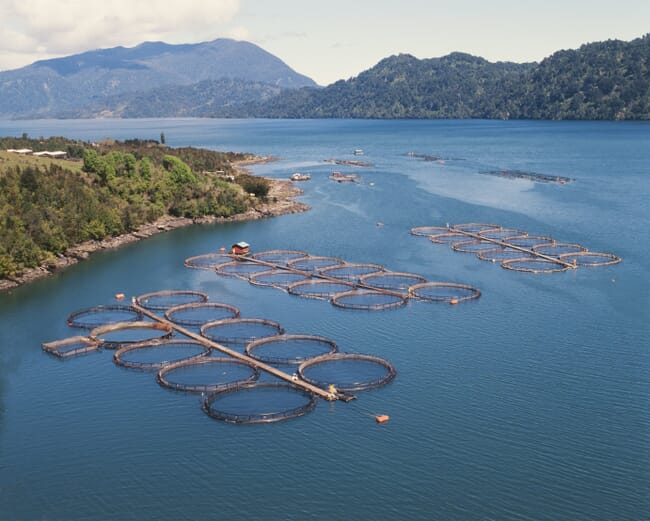
A collaboration of 76 environmental, animal welfare, and community groups from 18 countries have called out the industry trade association, Global Seafood Alliance, posing accusations of greenwashing of the industrial salmon farming sector through its latest version of the Best Aquaculture Practices standard.
In an open letter, submitted on the final day of the public consultation for BAP Salmon Farm Standard issue 3.0, the activists accused numerous BAP certified farms and facilities of being complicit in environmental damage, illegal activity, and negative impacts to endangered species. The letter contained examples of these activities across all major salmon farming regions, including Norway, Chile, Canada, and Scotland.
The activist groups criticised the new BAP standard for failing to quantify limits on critical environmental issues such as sea lice, disease, chemical pollution, and water quality damage. The letter claims that the standard simply relies on farms meeting minimal legal obligations and following business as usual practices.
“There is mounting evidence that environmental harms and human rights abuses are occurring despite the ‘responsible seafood’ claims of BAP and other certifications. The new BAP Standard is no exception,” said Kelly Roebuck, SeaChoice representative from the Living Oceans Society, in a press release announcing the letter.
“Farms in Chile’s marine protected areas will be eligible for certification; so will farms in Canada, Scotland and Norway with sea lice loads that are lethal to juvenile wild salmon; as well as Australian farms that are driving the endangered Maugean skate towards extinction,” she explained.
A significant number of major supermarkets - such as global giants Amazon, Walmart and ALDI; Loblaws and Target in North America; Tesco and Sainsbury’s in the UK; and Woolworths and Coles in Australia - defer to the BAP certification as part of the responsible seafood sourcing policies.
“Major supermarkets must quit relying on these flawed certifications, stop the greenwashing, and do their own environmental and human rights due diligence on their seafood supply chains,” said Dana Cleaveley, SeaChoice market analyst.
The open letter follows recent exposés by the Outlaw Ocean Project and Corporate Accountability Lab that uncovered serious allegations of forced labour, child labour, and worker exploitation, as well as environmental damage, associated with BAP-certified facilities in the Indian shrimp supply chain.




